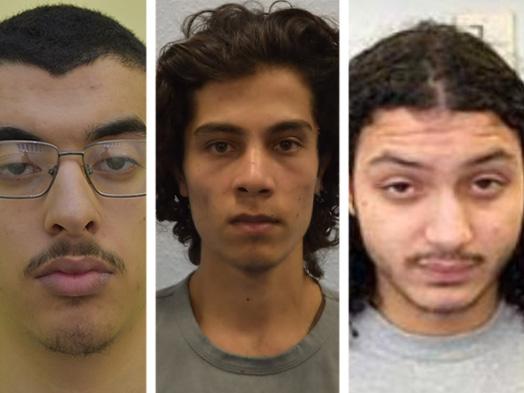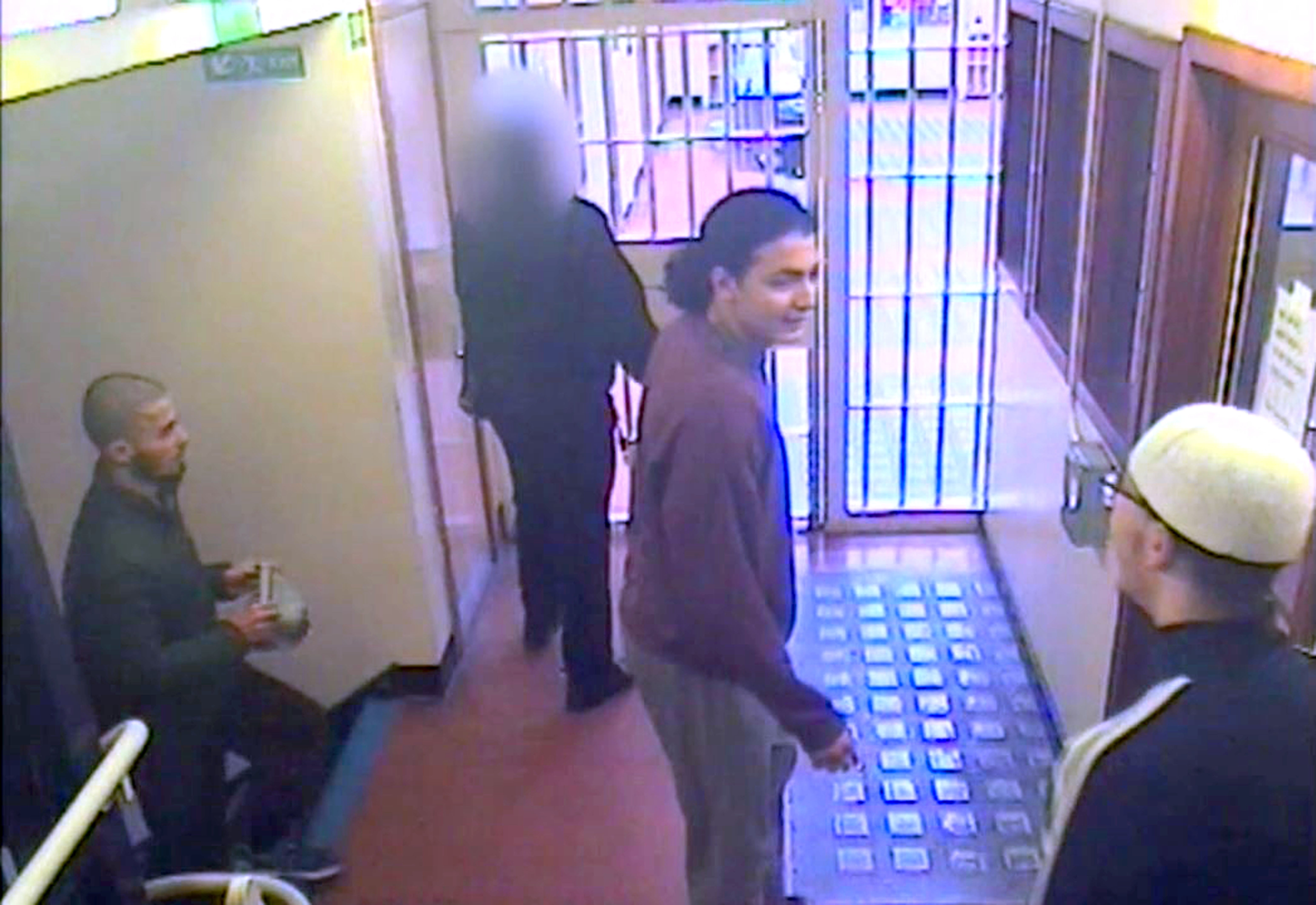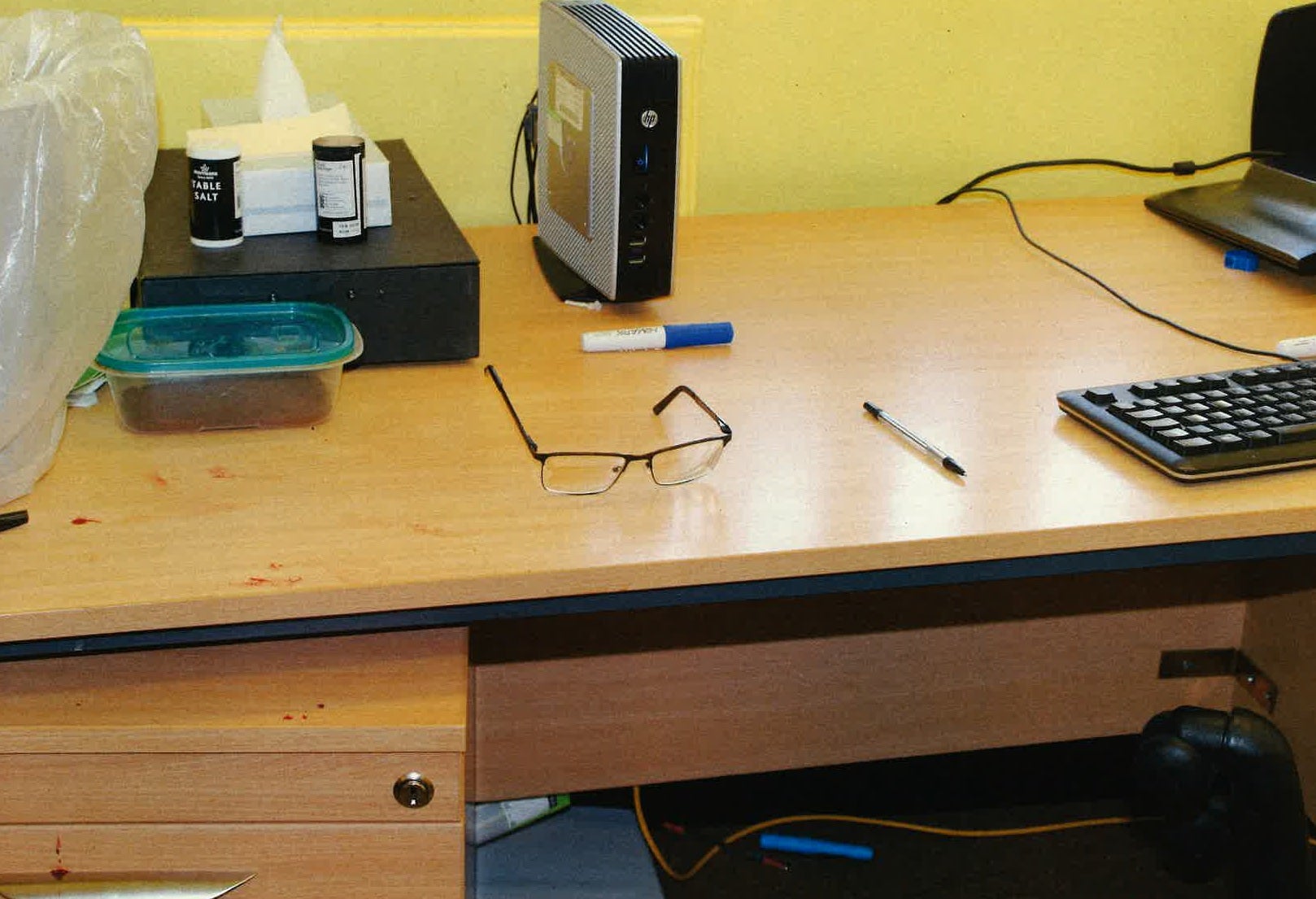
An attack by three terrorists inside one of Britain’s most secure jails must be a “wake-up call” for the government, it has been warned.
The Manchester attacker’s brother Hashem Abedi, Parsons Green bomber Ahmed Hassan and fellow Isis-supporting terror offender Muhammed Saeed launched the “animalistic” assault together in May 2020.
The trio were being held in HMP Belmarsh’s high security unit (HSU), described as a prison within a prison, alongside other terrorists and violent criminals at the time.
A court heard that Abedi, Hassan and Saeed associated with each other and other terrorist inmates, and that Abedi had been accused of being their “emir” or leader.
It is one of several court cases that have exposed terrorist networking inside HMP Belmarsh, with one plotter previously telling an undercover officer he was “surrounded by jihadis” who frequently discussed terror attacks and gave him trial advice.
Ian Acheson, a former prison governor who carried out a government-commissioned review of Islamist extremism in jails, said he had raised security concerns with ministers.
“The HSU is supposed to be our most extreme custody, holding some of the most dangerous people in western Europe,” he told The Independent.
“The fact that such a ferocious attack on staff could happen here is a huge security failure that ought to be a shocking wake up call for ministers.
“Jihadists came within seconds of murdering a prison officer at HMP Whitemoor earlier in 2020 – the public and prison staff will be entitled to know that they are properly protected from such offenders.”
The assault on custodian manager Paul Edwards was not designated as a terror attack, and Woolwich Crown Court heard it followed a dispute about inmates’ privileges and the prison regime.
A spokesperson for the Metropolitan Police said: “Due to the criminal history of the defendants, the assault was investigated by the Counter Terrorism Command. However, there was no evidence of any terrorist intent.”
Several incidents in the previous months, including a mass brawl, had resulted in Muslim and non-Muslim prisoners being separated in the HSU and Abedi had made several allegations of unfair treatment.
Some prison officers believed that Abedi was trying to take a leadership role in the HSU, after a powerful inmate was transferred elsewhere.

Peter Clarke, who previously served as HM Chief Inspector of Prisons and head of Scotland Yard’s Counter-Terrorism Command, warned of a “complete failure to understand the difference in the risk that’s posed by ideologically driven terrorists as opposed to other serious criminals”.
He told The Independent: “The deception, the risk they pose and their ability to game the system is quite significant.”
Mr Clarke, a senior fellow at the Policy Exchange, accused the government of failing to act on Mr Acheson’s findings. After being delivered in 2016, his 69 recommendations were reduced to 11, and then only eight were implemented.
The review resulted in the creation of three new separation centres for influential extremist prisoners, but as The Independent has previously reported, they have never been fully occupied.
Mr Clarke said the high security unit, where Abedi, Hassan and Saeed were being held at the time of the HMP Belmarsh attack, was “not designed as a place to address terrorist behaviour”.
“You can’t manage them as if they are any other type of prisoner,” he added. “The risks they present are not the same as other criminals, they shouldn’t have been there.”
The court heard that at the time of the attack, only one of four spurs of the HSU were in use, because one was undergoing maintenance and the other two were housing prisoners with Covid symptoms. The change left all inmates together on one part of the unit, rather than split up.

In early 2020 Abedi organised a campaign of identically-worded complaints from fellow terror offenders, over issues including access to translators for phone calls and exercise times.
The court heard that he wrote the complaints before they were copied out by prisoners including Hassan, Saeed and the Buckingham Palace sword attacker Mohiussunnath Chowdhury.
During a meeting held hours before the attack on 11 May 2020, he unsuccessfully tried to get the HSU governor to “speak to the brothers”, meaning Muslim inmates.
Recalling the meeting, Mr Edwards told the court: “I put a question to him that I felt that he was leading the other two prisoners.
“I might have said: ‘Do they see you as their emir, their leader. He said ‘no, how could I be, I’m the youngest’.”
But Abedi was not the youngest, and he is believed to have a high status among terror offenders because of his role in the Manchester Arena bombing – Britain’s deadliest terror attack since 2005.
The assault came just four months after two prisoners tried to murder a prison officer at HMP Whitemoor, in an Isis-inspired terror attack.
Just over a month before that, freed terror plotter Usman Khan murdered two people at a prison education event in London.
Further terror attacks were later carried out by released prisoners, in Streatham and Reading.
At the time of the assault in HMP Belmarsh, Abedi was awaiting sentence after being convicted for helping his brother bomb Manchester Arena in 2017.
Hassan, now 22, had been jailed for life with a minimum of 34 years for trying to murder London commuters in the 2017 Parsons Green bombing. The attack failed because his device only partially detonated.

Saeed, now 23, was being held on remand ahead of a trial for possessing an article for terrorist purposes.
He later pleaded guilty to five offences and was jailed, after a court heard that he had also discussed committing a knife attack himself. All three men were Isis supporters when they committed their offences.
Jurors were not told why the men were in the prison, or any information about their previous offending, and were told not to speculate during the trial.
Abedi represented himself and repeatedly declined the offer of a defence barrister, but interjected during hearings to ask questions of the judge, calling her “miss”.
He was allowed to cross-examine some prison officers who gave evidence, accusing them of exaggerating or lying about the severity of the attack on Mr Edwards.
Abedi refused to give evidence in person but gave a short speech to the jury, where he suggested that the defendants did not “get treated like other prisoners” and that other things had been “going on before 11 May 2020”.
Hassan and Saeed also refused to give evidence, and observed from the dock as barristers made submissions on their behalf. At other points, they chatted between themselves in Arabic.
All three defendants would not stand when asked to rise for the judge, and at one stage demanded a halt to proceedings so they could pray.
It was a more respectful display than at a preliminary hearing at Westminster Magistrates’ Court in April 2021, when Abedi proclaimed: “I did assault that filthy pig, but I don’t see any wrongdoing.”
During the same hearing, Hassan told a senior district judge Paul Goldspring he was “destined for hellfire” because he was “judging by other than the law of Allah”.
Hassan and Saeed did not address Justice Cheema-Grubb, but when asked to make any submissions during their sentencing hearing, Abedi said: “I don’t think the sentence is going to make any difference, inshallah [hopefully] myself and the brothers will be leaving prison very soon.
“The promise of Allah and his prophet are more truthful than your sentence and your judgment.”
A Ministry of Justice spokesperson said terror offenders were subject to stricter monitoring and conditions than other inmates, “including rigorous oversight of who they are associating with, routine checking of correspondence and higher staffing”.
A statement added: “We will never tolerate such appalling attacks against hard-working staff and – as in this case - will always push for the strongest possible punishment.”







